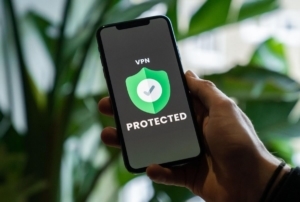![]()
Todd Faulk
Published on: March 6, 2024
Since Feb. 21, a ransomware attack on one of the two largest prescription-processing companies in the US has left millions of Americans without access to vital medicines.
Change Health, a business unit of UnitedHealthcare Group, took down its network after it was compromised by hackers who took control of customer data and demanded a ransom to get it released. The network outage has forced 90% of US pharmacies to alter how they fill prescriptions covered by health insurance.
Many pharmacies, unable to calculate how much of a customer’s prescription is covered by insurance, have resorted to charging customers full price, which can be more than 10 times what a customer is used to paying with a copay. Unable to afford the dramatic price increases, some customers are simply going without their needed medicines and putting their health at risk.
Other pharmacies, especially smaller independent ones, have not been filling some prescriptions due to the risk of never getting paid by insurers without the Change Health network in operation. These smaller pharmacies find themselves in a cash crunch — not receiving payments from insurance carriers while still dispensing medications. If the outage lasts much longer, some may not have the money to buy new stocks.
CVS, one of the largest pharmacy chains in the US, is trying to fill all customer prescriptions knowing that it may never get some of the money it’s owed from insurance companies. The company said that “in a small number of cases … our pharmacies are not able to process insurance claims” due to the outage.
ALPHV, a notorious Russian ransomware gang, announced that it was behind the attack on Change Health. The US Justice Department and other nations reportedly disabled ALPHV in a December 2023 cyber operation, but it’s clear that ALPHV quickly recovered. After the brief takedown, ALPHV promised to enact revenge and ordered its affiliates to go after more sensitive American targets.
It’s estimated that ALPHV has received over $300 million from its ransomware attacks over the last several years. Two of the most notable include the hacking of Caesar’s Palace in Las Vegas and the 2021 disruption of Colonial Pipeline, which resulted in gasoline shortages from the forced shutdown of pipelines throughout the eastern US.
- SEO Powered Content & PR Distribution. Get Amplified Today.
- PlatoData.Network Vertical Generative Ai. Empower Yourself. Access Here.
- PlatoAiStream. Web3 Intelligence. Knowledge Amplified. Access Here.
- PlatoESG. Carbon, CleanTech, Energy, Environment, Solar, Waste Management. Access Here.
- PlatoHealth. Biotech and Clinical Trials Intelligence. Access Here.
- Source: https://www.safetydetectives.com/news/ransomware-attack-disrupts-processing-of-us-prescriptions/
- :has
- :is
- :not
- 10
- 2021
- 2023
- 40
- a
- Able
- access
- affiliates
- After
- All
- American
- Americans
- and
- announced
- ARE
- At
- attack
- Attacks
- avatar
- BE
- been
- behind
- business
- but
- buy
- by
- calculate
- CAN
- carriers
- cases
- Cash
- chains
- change
- charging
- clear
- Companies
- company
- Compromised
- control
- covered
- crunch
- customer
- customer data
- Customers
- cyber
- data
- December
- demanded
- Department
- disabled
- Disruption
- disrupts
- down
- dramatic
- due
- eastern
- especially
- estimated
- Feb
- fill
- filling
- Find
- forced
- from
- full
- Gang
- gasoline
- get
- getting
- Go
- going
- Group
- hackers
- hacking
- Have
- Health
- health insurance
- How
- HTTPS
- if
- in
- include
- Increases
- independent
- insurance
- IT
- ITS
- Justice
- Justice Department
- Knowing
- largest
- LAS
- Las Vegas
- Last
- left
- longer
- May..
- medications
- million
- millions
- money
- more
- most
- much
- Nations
- needed
- network
- NETWORK OUTAGE
- never
- New
- notable
- notorious
- number
- of
- on
- ONE
- ones
- operation
- Other
- our
- outage
- over
- paid
- Palace
- paying
- payments
- pharmacies
- pipeline
- plato
- Plato Data Intelligence
- PlatoData
- prescription
- price
- process
- processing
- promised
- Putting
- quickly
- Ransom
- ransomware
- Ransomware Attack
- Ransomware Attacks
- received
- receiving
- released
- reportedly
- Risk
- russian
- Said
- sensitive
- several
- shortages
- shutdown
- simply
- small
- smaller
- some
- Still
- Stocks
- targets
- than
- that
- The
- their
- themselves
- These
- they
- throughout
- times
- to
- todd
- took
- trying
- two
- unable
- unit
- us
- used
- VEGAS
- vital
- was
- webp
- What
- which
- while
- WHO
- with
- without
- years
- zephyrnet













